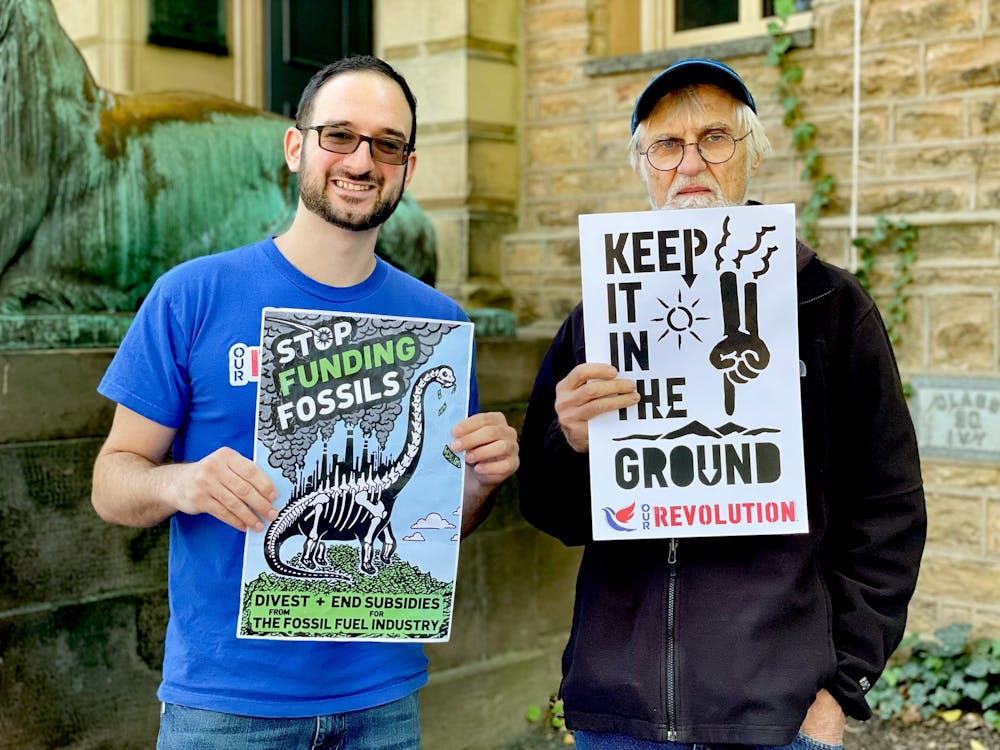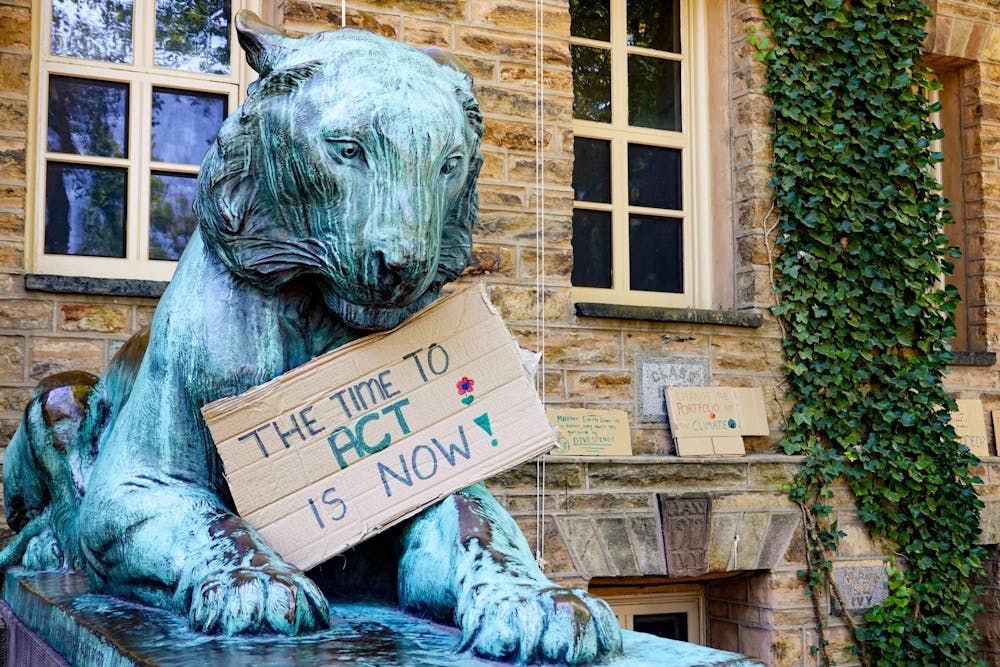On Friday, Sept. 23, Divest Princeton held a demonstration in front of Nassau Hall as part of the 2022 Global Climate Strike. The group of majority first-year participants sang protest songs, chanted, and held signs calling on the University to divest from fossil fuels.
Facing the steps of Nassau Hall, Eleanor Clemans-Cope ’26 criticized the University’s goal of a net zero campus by 2046 and its research connections to fossil fuel companies.
“They want us to congratulate them when they allow science research to be funded with millions from fossil fuel companies,” she said.
In May of 2021, the Board of Trustees announced that the University would disassociate with certain sectors of the fossil fuel industry. In 2021, a faculty panel was also formed to provide counsel to the University about which companies and sectors meet the standard of dissociation.
Following similar demonstrations by Divest Princeton last year, Deputy University Spokesperson Michael Hotchkiss told The Daily Princetonian that the approach that was ultimately adopted was “a set of policies that are more aggressive than those recommendations and grounded in Princeton’s history as a world leader in conservation and climate science research.” Since those demonstrations, Divest Princeton’s demands have largely remained unchanged.
Over the summer, a University faculty committee released “a set of actionable criteria for dissociation, and a process for implementing them now and in the future.” Campus activists criticized that report as a “stalling tactic,” pointing to the $1.7 billion fossil fuel exposure of the endowment.
Alex Norbrook ’26 discussed Divest Princeton’s work at Sunday’s demonstration.
“Our university’s deep ties to the fossil fuel industry are terrifying, and fighting against such a large and well organized institution is scary,” he said.

Representatives of Our Revolution, a progressive activist group that formed out of Sen. Bernie Sanders’ (I-V.T.) 2016 presidential campaign, were also present at the event.
“We've been supportive of ... this group for a while now,” Joe Marchica, chair of the group’s Mercer County chapter told the ‘Prince.’ “And we want to see as many universities, institutions, [and] companies divest from fossil fuel investments.”

Protesters with Divest Princeton hold signs outside of Nassau Hall at the Climate Strike on Friday, Sept. 23
Keeren Setokusumo / The Daily Princetonian

Divest Princeton co-coordinator Aaron Serianni ’25 told the ‘Prince’ that including younger students would be an important part of Divest Princeton’s strategy in the future.
“[O]ne of the biggest tactics Princeton uses against activism movements is taking advantage of the four years that students are at Princeton,” he said. “They think that once the leaders of an organization graduate, the movement will end — and they’ve been successful at that.”
Clemans-Cope underscored the generational aspect of climate change activism.
“The younger you are, the more you will be affected by the climate crisis,” she said. “And so as the years progress, Princeton is almost certainly going to see more and more climate activists coming to campus.”
“The odds are stacked against [the University],” she added. “We’re coming whether they like it or not.”
Indeed, most of the protesters present seemed to be members of the Class of 2026, as a majority of those in the crowd raised their hands after Serianni asked who was a first-year.
Davi Frank ’26 told the ‘Prince’ that he became involved with Divest Princeton by joining their listserv over his gap year. He noted that he wanted climate justice to “be something that's on the agenda for people who wouldn't necessarily even consider themselves environmentalists, but can understand the magnitude of these issues.”
“And I hope that someday soon, we will see a divested Princeton,” he added.
Correction: A previous version of this article misattributed a quote to Alex Norbrook ’26, when in fact it was spoken by Eleanor Clemens-Cope ’26. The ‘Prince’ regrets this error.
News and Features contributor Sophie Glaser contributed reporting.
Hope Perry is the Head Podcast Editor at the ‘Prince’ who has covered USG, U.S. politics, and student activism. She can be reached at hperry@princeton.edu or on Twitter @hopemperry.








